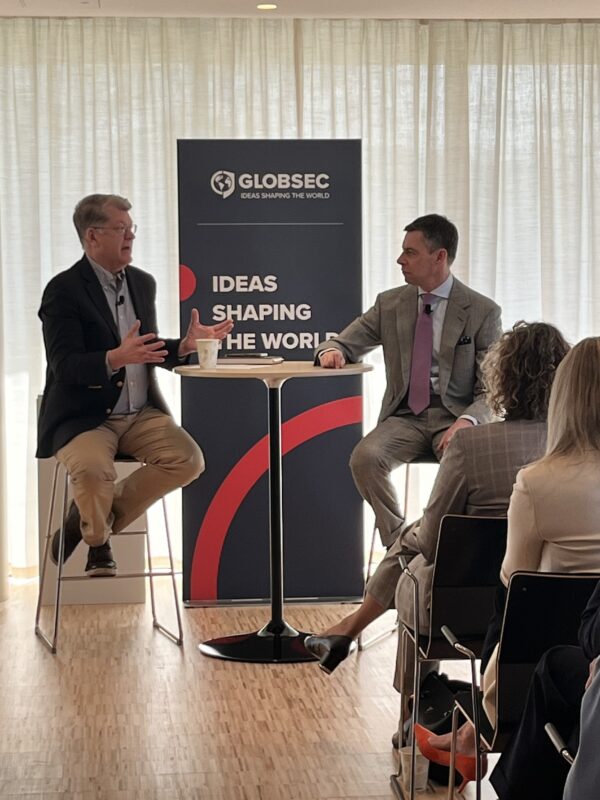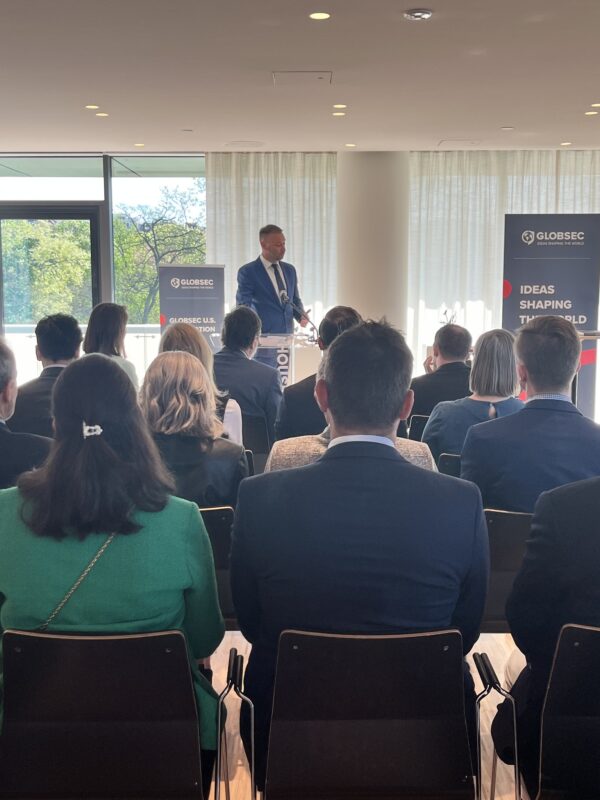Against the backdrop of the wars in the Middle East and Ukraine, and the International Monetary Fund and the World Bank’s Spring Meetings Week, we convened some of the most innovative voices on foreign policy at the House of Sweden in Washington D.C. on 16 April 2024, to reflect on transatlantic stress, as well as the geo-economic, geo-strategic, and geo-tech trends worth worrying about.
Our series of conversations featured Michele Flournoy, Helene Cooper, Dmitri Alperovitch, and Jacob Heilbrunn in conversation with Steve Clemons, Co-Chair of the GLOBSEC USA Initiative and Founding Editor at Large of Semafor. The House of Sweden and Ambassador Urban Ahlin were our gracious and inspiring host for the event.




The most prominent dynamic change in the global economic landscape is the incursion of strong national security frameworks into economic planning, global trade and investment strategies, and in the management of conflicts.
‘Strategic de-coupling’ or ‘de-risking’ have become the new lingo used by leading US policymakers in talking about US-China economic relations. Not only did the US lead a global
condemnation and rejection agenda of Chinese communications juggernaut Huawei, but rumbles of the same strategy continue with the social media giant TikTok. On another front, Russia’s weaponization of the supply or constriction of energy has transformed national development and economic strategies in energy; yes, renewables are strongly in the picture but coal, oil and gas are at all time high production levels.
The tendency of US and Europe to deploy economic sanctions against governments, corporations and individuals for behaviors it objects to have triggered substantial transnational efforts by BRICS countries to de-risk their own currency reserves and create new baskets of held and traded currencies for global accounts settlement. In other words, the dollar as the world’s default currency has cracks in its foundation.
And almost entirely rejecting the kind of invisible hand, laissez-faire capitalist model and neoliberal economic framework, the United States with both political parties supporting the shift is championing major industrial policy. The CHIPS Act promoting increased investment in US semiconductor manufacturing, the Inflation Reduction Act which makes both the largest investment ever in renewable energy sources and methods while still promoting fossil fuels, and the Bipartisan infrastructure deal have given the US government enormous resources to rewire and reinvent the contours of America’s national economic base, much to the chagrin of European and Asian partners.
And the rise of populism in America and globally has consequences — often delivered in the reduction or suspension of global military commitments as seen recently in US support of Ukraine, which is troubled and fragile at the time of this writing. What is not working in the economic equation of leading market economies that large parts of the population are rejecting global engagement and alliances. What might a
reset look like?

The discussion address these and many other questions around the rise of national security considerations in economic policy and increasing tensions informed by global geoeconomic and geotech competition.
